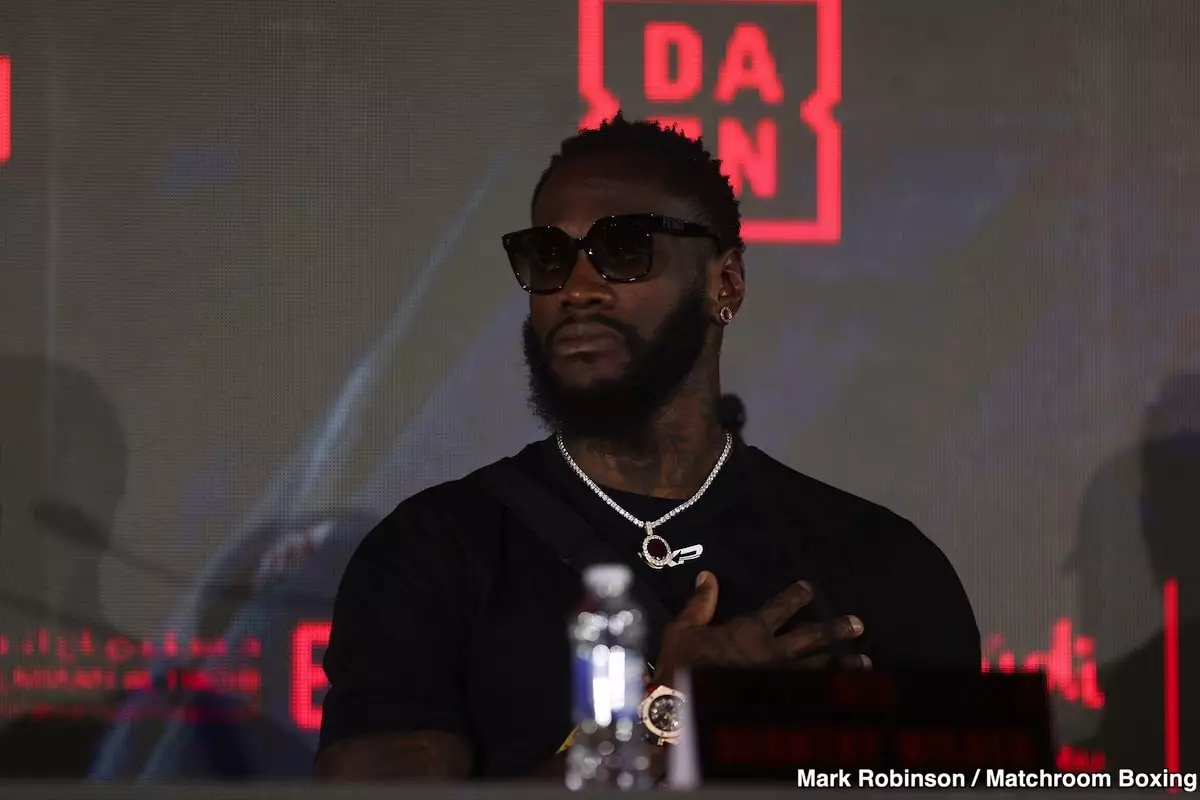Former heavyweight champion Deontay Wilder finds himself at a crucial juncture in his career as he prepares to face Stephan Shaw in April, a bout set to be broadcast on BLK Prime PPV from Atlanta, Georgia. With a record of 43 wins, 4 losses, and 1 draw, including a staggering 42 knockouts, Wilder’s accomplishments in the ring are undeniable. However, a closer examination of his recent performances reveals a concerning trend—a disheartening 1-4 record over his last five fights. For many fans, the once-mighty ‘Bronze Bomber’ appears to have become an relic of a more glorious era, landing in a perilous position reminiscent of fellow fighters like Devin Haney, who currently fight beneath the shadow of their prime.
Wilder’s upcoming match against Shaw, whose record stands at 20 wins and 2 losses, offers the former champion a chance to reclaim some of his physical prowess. Known for his bone-crushing knockout ability, Wilder has shown flashes of his potential, still showcasing powerful punches such as those he delivered against Zhilei Zhang, which could have shattered most heavyweights. Nevertheless, Wilder’s reticence to unleash his infamous right hand has become evident, sparking concerns about his psychological state inside the ring. This fear of getting hit appears to overshadow his willingness to engage and unleash his abilities.
In stark contrast, Shaw represents a younger challenger unburdened by the same psychological barriers. At 32 years old, he stands 6’4″ and brings aggression and power to the ring. Having only two losses to regarded fighters like Joseph Goodall and Efe Ajagba, Shaw has demonstrated resilience and enough competitive spirit to make this matchup intriguing. Unlike Wilder, Shaw is not afraid to throw punches, adding an unpredictable element to the fight that could potentially expose Wilder’s vulnerabilities.
The historical context of Wilder’s fights against elite opponents, particularly Tyson Fury, weighs heavily on his psyche. In their three encounters, Wilder struggled to perform at his previous levels, unable to let his fists fly with the same efficiency that marked his earlier career. This inability to engage in high-pressure situations has raised doubts about whether he can still effectively navigate the ring, and age seems to be an increasingly notable factor as well.
Wilder must face the sobering reality that another loss—especially to a fighter like Shaw, who is not considered among the upper echelon of heavyweights—could signal the end of his boxing journey. Financial security may not compel a once-great champion to continue fighting if it compromises his legacy and self-image. Should Wilder falter in this bout, retirement could be more appealing than the struggles of fighting at diminished capacity against lesser opponents.
As Deontay Wilder gears up for this decisive encounter, the stakes have never been higher. A victory could reignite his career and restore belief in his formidable capabilities, while a defeat could lead him to question his place in the boxing world. With all eyes on Atlanta in April, fans and analysts alike will watch closely to see if Wilder can tap into his once-dominant form or if this matchup marks a final chapter in a storied, yet tumultuous, career.

